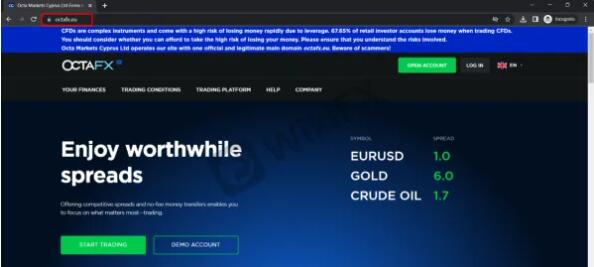In recent years, forex trading has grown in popularity, drawing traders from all over the world to the market. However, as the market has grown, so has the number of fraudulent activities. One such risk is the copying of genuine Forex trading websites by con artists, who do this to deceive users into disclosing their personal and financial information. In this piece, we’ll talk about how users can avoid becoming targets of the increasing danger posed by cloned Forex websites.
What is Forex Website Cloning?
The act of making a false website that closely mimics an actual website for dealing in forex is known as forex website duplication. To build a compelling phony website, scammers frequently use the same color palettes, trademarks, and even domain names. They then employ a variety of strategies, such as exaggerated return promises or special offers, to entice unwary dealers to their website.


When a user accesses the false website, they are prompted to enter their money and confidential details in order to open an account. Instead of using the data to establish a trustworthy trading account, scammers steal all your personal information and use it for shady practices like identity theft or illegal transactions.
The Growing Threat of Forex Website Cloning
Cloned forex websites are posing an increasing risk to dealers all over the globe. the number of Forex website clones has increased significantly in recent years. According to the research, scammers frequently target traders in Southeast Asia and Africa, where forex trading is prevalent but poorly regulated.
Furthermore, scammers are becoming increasingly sophisticated in their tactics, making it harder for traders to identify fake websites. For example, scammers may use fake customer reviews or testimonials on their websites to create the illusion of legitimacy.
How to Protect Yourself from Forex Website Cloning
Being watchful and taking certain measures are crucial if you want to avoid becoming a victim of Forex website duplication. The following actions can be taken to safeguard yourself:
Verify the website address: Before submitting any confidential or private information, always double-check the website’s URL. Scammers frequently use domain names that closely mimic trustworthy websites by adding a comma or altering a letter. (examples shown above.)
Check the website: Before using a website, make sure it is legitimate. You can do this by looking at the website’s SSL certificate, which verifies the website’s security and independent verification. On impartial review websites or communities, you can also look up the name of the website.
Utilize Secure Passwords: For your Forex trading accounts, always use solid, one-of-a-kind passwords. Even if scammers have your private information, this will make accessing your account more difficult.
Implement two-factor authentication: When using two-factor authentication, an additional security precaution, you must first enter a unique code sent to your phone or email. This could assist in limiting unwanted entries to your account.
